[bannerTop]
Welcome to our Svcvmx “Virus” removal guide. The following instructions will aid you in removing the unwanted software from your PC.
If you reached this page, then you probably had enough of annoying ads, banners, pop-ups and page redirects generated by Svcvmx “Virus”. This program has probably made your favorite Chrome or Firefox browser go crazy and flood you with annoying sponsored advertisements which may interfere with your normal browsing activity. If you want to put the end of this disturbance, you may need to remove the adware that is causing it in the first place. In your case this is Svcvmx “Virus” and on this page, you are going to find a step-by-step removal guide that will help you completely uninstall it from your system. We would like to point out also a few typical features of the ad-generating programs of this type, so you could better understand the way they operate and successfully avoid them in the future. To know more, just read the information below and carefully follow the instructions.
What is adware and where can it be found?
Generally, adware comes in short from advertising software, and as the name suggests, this is a piece of software, that is built and programmed to display different types of advertisements on the user’s screen. Adware applications like Svcvmx are widely spread on the web. They can be found on freeware websites, file sharing sites, in spam emails, direct downloads, torrents, installation managers, etc. The way they are most commonly distributed is through software bundles, where they are usually packed with other applications that users willingly download. But what distinguishes them from other ads you see online is that they get installed directly on your computer and get delivered through an ad-generating component, which is integrated in your default browser and generates ads the moment you open a new browsing session.
How can a program like Svcvmx get installed on you PC?
Unlike other rather sneaky threats like viruses, Trojans, Ransomware or Spyware, adware actually requires your active assistance to get installed on your computer. The reason is that this type of software is a legitimate advertising tool and it needs your permission to get installed and operate on your system. However, you may not really notice that such a program is included in the setup when you run the installation of a given bundle, especially if you proceed with the default installation option and don’t read the EULA. Clicking the “OK” button without carefully checking all the options is a common mistake that users make when they install new software on their computer. And if you recall the latest program you installed, you probably also made the same mistake and most probably ended up with Svcvmx along with the other software. To avoid such potentially unwanted installations, we would advise you to always seek for advanced or custom options during the setup process. This is the place where you can find adware and all sorts of additional applications that are included in the installer. By simply unselecting them, you can prevent them from getting installed and save yourself from the need to uninstall them later.
Why are the ads so aggressive?
As an ad-generating tool, Svcvmx is effectively used by vendors and advertisers to display sponsored messages, pop-ups, banners and ads within your default Chrome or Firefox browser. These sponsored messages are usually paid through a method called Pay-Per-Click (PPC), and many businesses and software developers use them to generate income. That’s why the owners of adware try to display as many ads as possible and increase the chance of collecting as many paid clicks as possible. However, they often overdo it with the number of ads and web pages, which results in users’ irritation and disturbance. Once their online activity is heavily interrupted by the adware, users may seek an option to remove it, which is the only way to permanently stop the ad-generating activity.
Svcvmx is annoying but not dangerous
To reassure the users, who may be frustrated by the intrusive activity of Svcvmx, we would say that this program does not represent a security risk to your system. It is neither a virus, nor malware and at its worst, it could only cause you browsing disturbance and irritation. That’s why security experts classify it as a potentially unwanted program, which could definitely not be compared to the harmful abilities of Ransomware or Trojans. But still, the annoyance it may cause may be enough for some users to decide to remove it. If you are one such annoyed user, below is a removal guide that will help you find all the Svcvmx related files and manually delete them from your system. For all the left traces, we suggest you scan your PC with the Svcvmx removal tool to ensure the complete removal. In case you need any help, just let us know in the comments section below and we will be glad to help.
How to Remove Svcvmx “Virus”
I – Uninstallation
[bannerMiddle]
- Use the Winkey+R keyboard combination, write Control Panel in the search field and hit enter.

- Go to Uninstall a program under Programs.

- Seek the unwanted software, select it and then click on Uninstall
- If you are unable to spot Svcvmx, search for any unrecognized programs that you do not remember installing on your PC – the unwanted software might disguise itself by going under a different name.
II – Safe mode and revealing hidden files
III – Cleaning all your browsers
- Go to your browser’s icon, right-click on it and select Properties.

- Go to the Shortcut tab and in the Target make sure to delete anything written after “.exe”.

- Now, open your browser and follow the instructions below depending on whether you are using Chrome, Mozilla or IE.
- Chrome users:
- Go to your browser’s main menu located in the top-right corner of the screen and select Settings.
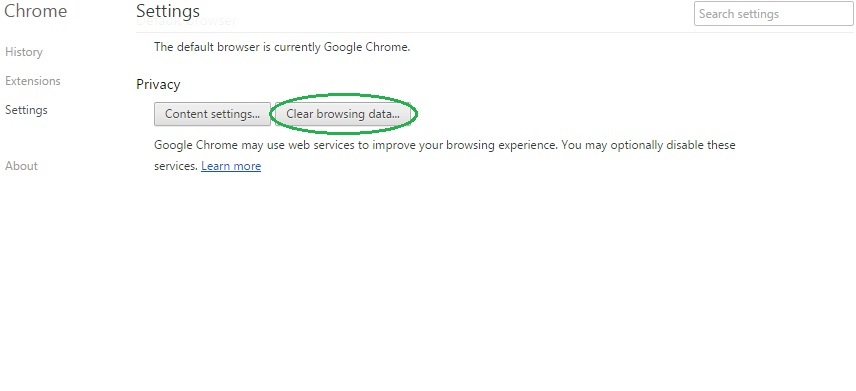
- Scroll down, click on Show Advanced Settings and then select Clear browsing data. Just to be sure, tick everything and clear the data.
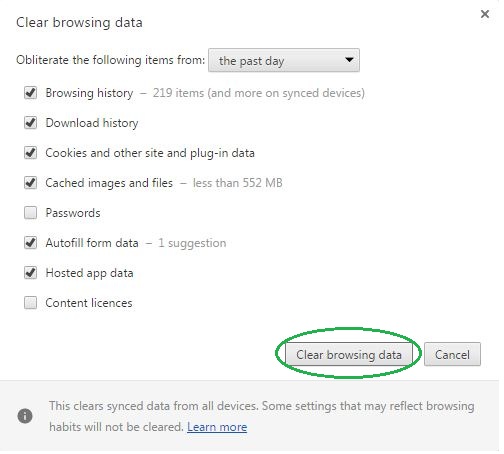
- Now, in the left pane, go to Extensions and look through all extensions that are integrated within your browser. If you notice any suspicious add-on, disable it and then remove it.
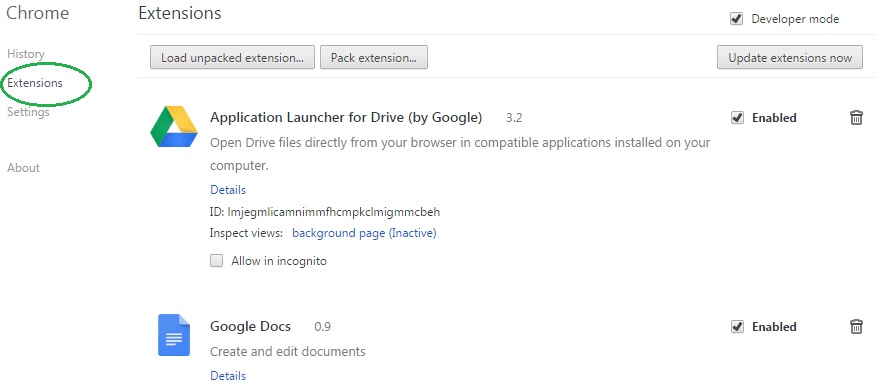
- Firefox users:
- Similarly to Chrome, go to the main menu and select Add-ons and then Extensions.
- Remove any suspicious browser extensions that you may have even if they do not have the name Svcvmx on them.
- IE users:
- Go to Tools and select Manage add-ons.

- Click on all add-on types from the left pane and check if there is anything suspicious in the right panel. In case you find anything shade, make sure to remove it.
IV – Removing Shady processes
[bannerMiddleSecond]
- Go to your start menu, type Task Manager in the search field and from the results open View running processes with Task Manager.

- Thoroughly look through all processes. The name Svcvmx might not be there, but if you notice any shady looking process that consumes high amounts of memory it might be ran by the unwanted program.
- If you spot the process ran by Svcvmx, right-click on it, open its file location and delete everything in there. Then go back to the Task Manager and end the process.

V – DNS check
- In the start menu search box write View Network Connections and open the first result.
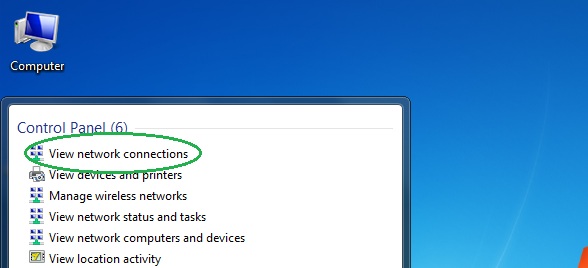
- Right-click on the network connection you are using and go to Properties.

- Select Internet Protocol Version (TCP/IPv4) and click on Properties.

- If Obtain DNS server addresses automatically is not checked, check it.
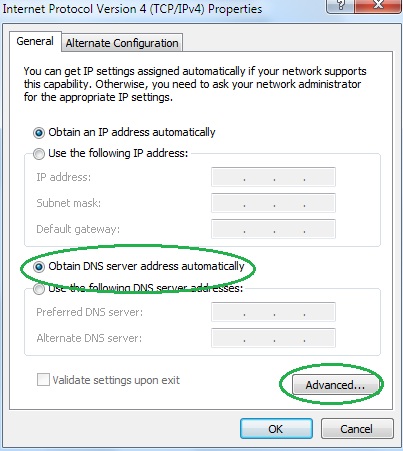
- Go to Advanced and select the DNS If there is anything in the DNS server addresses field, remove it and click OK.

- Click OK on the rest of the opened windows.





Leave a Reply